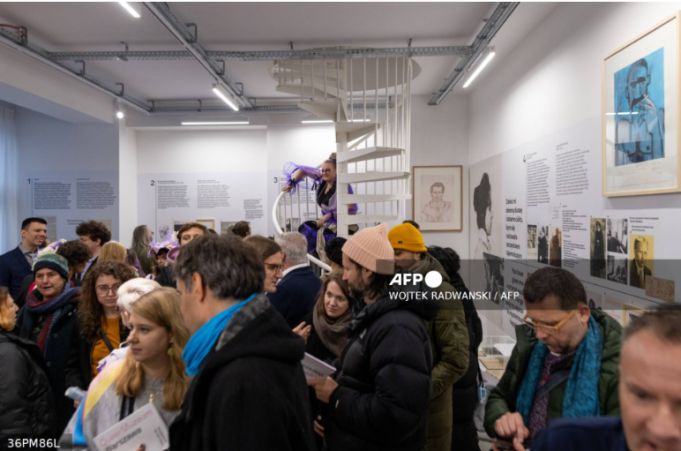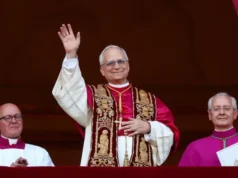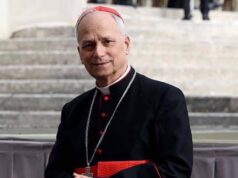Poland has opened its first-ever LGBTQ museum, marking a significant step forward for the community in a country where full legal rights are still a work in progress.
Situated on one of Warsaw’s busiest streets, nestled between a kebab shop and a second-hand store, the museum showcases nearly 150 artifacts that chronicle the struggles of Poland’s LGBTQ movement.
The museum’s minimalist design offers a somber yet powerful backdrop to its exhibits, which span several centuries, reflecting the LGBTQ community’s history in Poland, often hidden due to fear of repression.
The museum was established by Lambda, a nonprofit rights group, and is described as a first for post-communist Europe.
Krzysztof Kliszczynski, the museum’s director, expressed his joy at seeing the institution come to life.
The exhibits detail the history of LGBTQ people in Poland, starting in the 16th century, and include letters, photographs, and early examples of activism, much of which was conducted secretly due to the fear of persecution.
Among the featured objects is a 1956 magazine, rediscovered and now a rare piece of LGBTQ history.
At the museum’s ribbon-cutting ceremony, dozens of LGBTQ campaigners from across Poland gathered to celebrate the museum’s opening.
Many of these activists, such as Andrzej Selerowicz, who in 1983 launched Poland’s first gay men’s newsletter, have dedicated decades to fighting for equal rights.
Selerowicz, 76, attended the event and pointed to a cherished photo of himself and his partner taken 45 years ago.
Another key figure, Ryszard Kisiel, also in his 70s, contributed items to the museum, including a leaflet he created almost 40 years ago on safe sex.
The two men, recognized as pioneers in Poland’s LGBTQ rights movement, were honored by the staff and other attendees at the event.
Historians note the difficulty in collecting artifacts that document this often-overlooked history, as many items were lost or intentionally destroyed after the death of their owners.
Piotr Laskowski, a historian at the University of Warsaw, highlighted the personal and often hidden nature of LGBTQ history, which has led to the loss of important memories and objects over the years.
In addition to celebrating the museum’s opening, attendees also pointed to the ongoing challenges faced by the LGBTQ community in Poland.
Despite promises from the ruling party to legalize civil unions, same-sex couples still do not have the right to marry or register partnerships.
Selerowicz expressed frustration at Poland’s slow pace of reform, especially as other European countries, even those considered more conservative, have already introduced civil unions.
As the museum became a symbol of hope for the future, Kliszczynski and other campaigners vowed not to be intimidated by potential homophobic attacks.
“Enough of being afraid… We can no longer be afraid,” Kliszczynski declared, emphasizing their resolve to protect the space at all costs.

















